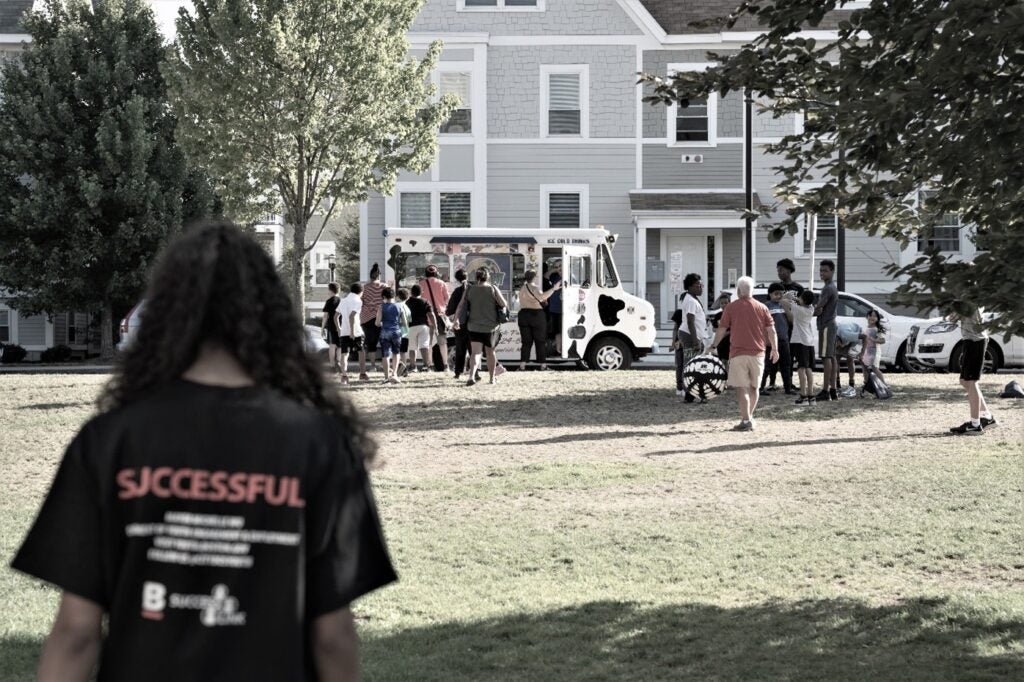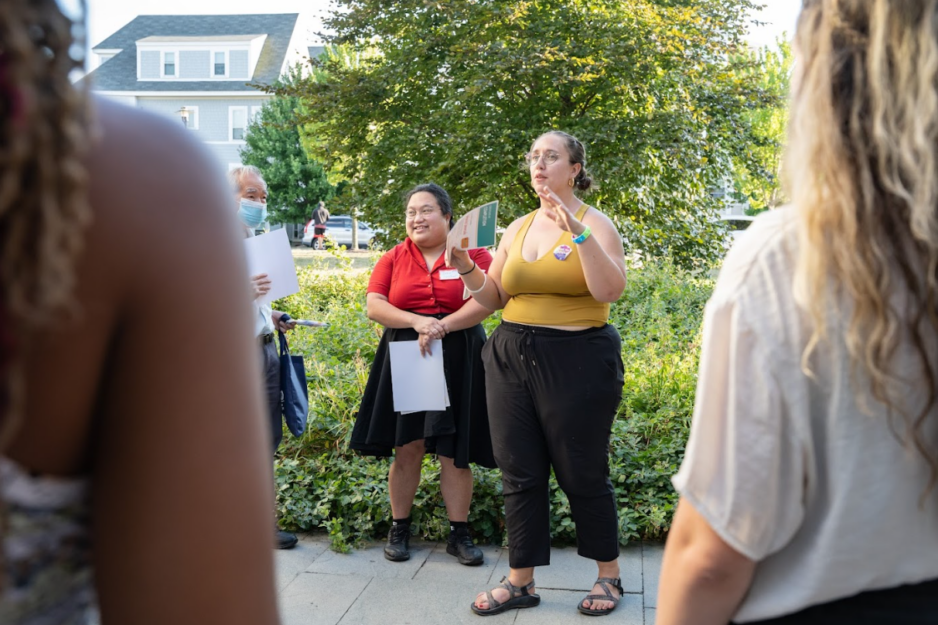Pictured above: Jen Cruz hosting the neighborhood block party for the Community Health Advocate Mobilization Program (CHAMP)
With resources from the fellowship, Jen Cruz (PhD candidate) developed the Community Health Advocate Mobilization Program (CHAMP), a public health education program that provides community members with additional knowledge, skills and language that complement their lived experiences so they can more effectively advocate for the public health needs of their community. This work was done in partnership with the Allston Brighton Health Collaborative, a local community-based organization Jen has been actively volunteering with since 2021.
Where is the work with CHAMP now?
Since piloting it in summer of 2022, CHAMP has paved a new path for how ABHC not only engages with the Allston-Brighton communities, but how ABHC invests in the community. Through continued funding from the Barr Foundation, a new iteration of the program (now called CAMP- Community Advocate Mobilization Program) is about to launch this spring and will run for 5 cohorts. The initial CHAMP pilot was really just a test of if something like this would be welcomed by the community, fill a need, and offer community members an on-ramp into ABHC’s work. After “graduating” the first cohort of 13 participants it was confirmed that this kind of program matters and works. This is evidenced by the continued engagement of participants in ABHC’s work- many of them are now in committee leadership roles!
What is a value that the fellowship introduced or reinforced in your public health research/practice?
The Population Health Sciences PhD program that I’m enrolled in is really focused on “how” and the “what” of research with its focus on methods, theory, and study design but I felt like I wasn’t getting the experience I needed in the “who” the research was for. Being able to have the resources from the Rose Fellowship as well as the Presidential Public Service Fellowship allowed me to really put my public health training into action by making it accessible to my own community. What I’ve come to understand through this experience is that investing in the communities that often are just studied makes a huge difference in the reach of the work. If we want our work to make an impact now and long-term there is a need to get our work out of academic journals and into the communities being most impacted. I really think public health research and practice are most effective when done in tandem.
How do you keep this value/approach front/center in your work?
I’ve been really intentional with my dissertation work to take a community-engaged approach that isn’t burdensome to my partners but is helpful to moving their own work forward. Dissertations are really an individualistic task and are done to assess my capabilities, which to me is not in alignment with community-based practice work. However, there are ways to engage with folks to stay grounded in community needs and support their work to build the foundation for future work together. My dissertation is focused on understanding barriers and facilitators that different rural communities face when trying to access breast cancer screening. To ensure that the results from this work could be put into practice I worked with community partners in the Yakima Valley, where I was born and raised, to make sure that the questions I was going to be asking were relevant to their work focused on increasing breast cancer screening. These conversations have helped me focus my work, connect with the right people, and hold me accountable to developing products that have long-term impact in the academic community as well as direct impact in the community I am from.

See below for more updates:

You must be logged in to post a comment.